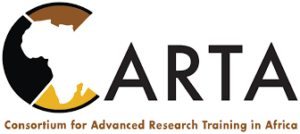All About CARTA SHINE
“The CARTA Sexual Harassment In Nigerian Educational Institutions (CARTA SHINE) PROJECT”
“The CARTA Sexual Harassment In Nigerian Educational Institutions (CARTA SHINE) PROJECT”

In Nigeria, SH came into the limelight through the Cookey’s commission panel established to address allegations of female students failing examinations for reasons not based on their academic abilities.
Prevalence among female respondents in Nigerian tertiary institutions.
SH is not easy to define, partly because it does not involve a homogenous set of behaviours. In academic settings, SH includes requests for sexual favours and verbal or physical sexual activities, which are used as the basis for employing or awarding academic marks to an individual depending on acceptance or rejection of those advances and creating hostile learning environments when advances are rejected.
SH in colleges and universities is grossly underreported. Survivors rarely report the SH experience. This is often because of unequal power relations, fear of loss of status, marks or jobs as retaliation and the attendant stigma that brings.
The global prevalence of SH in tertiary institutions is high. The prevalence is higher in Nigeria, ranging from 68% to 80% among female respondents and 69 – 99% when a broader spectrum of SH was assessed. There are gender variations in the experience and perception of SH in literature.
Some authors have alluded to the fact that indecent dressing is a factor in SH, and part of the recommendation for females is propriety in dressing as a means to prevent SH.
The culture of silence around SH in Nigerian higher institutions is widespread.
Several studies have investigated the prevalence of SH and associated factors in Nigeria. Many of these studies have focused almost exclusively on heterosexual SH despite reports of same-sex SH. The present study will interrogate the culture of SH in Nigerian universities.
This study will investigate the experience of SH by men and women in heterosexual and same-sex relationships in universities in Nigeria.

The proposed study aims to determine the prevalence and factors associated with SH in Nigerian tertiary institutions and to explore the lived experiences of individuals who have experienced SH. The specific objectives are as follows:
“The findings from the present study will improve the understanding of factors that drive SH among staff and students in tertiary education institutions in Nigeria and the risk vulnerable populations face.
This information will help design and implement policies and programs that can reduce the risk of vulnerable populations to SH, in view of the long-term and/or lifetime mental and social effects of SH on survivors and improve reportage among survivors.”
The Project is funded by CARTA.

Principal Investigator
Institutional Mentor
External Mentor